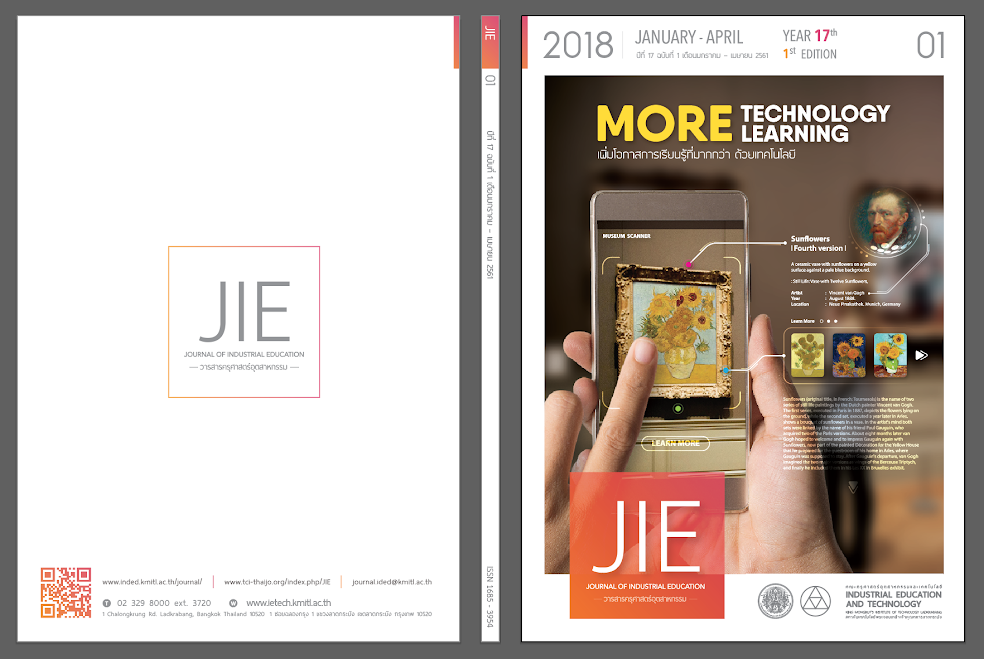PLANT PROBIOTIC BEVERAGES : ALTERNATIVE FOR FUNCTIONAL BEVERAGES
Keywords:
Probiotic beverage, Lactic acid fermentation, Probiotic microorganism, Fermented plant juiceAbstract
Probiotic beverage is a fermented beverages produced by the activity of probiotic microorganisms. Probiotic beverage are made from a variety of raw materials. They are classified into 2 groups : dairy based probiotic beverage and non-dairy based probiotic beverage. Currently, non-dairy based probiotic beverage such as plant probiotic beverage is a drink that gets the attention of consumers. Because there are many benefits such as exposure to bioactive ingredients in the raw materials, benefits from microbes used as starters and a variety of products based on the type of raw materials used. Raw materials used in the production include vegetables, fruits, cereals, which Thailand have many raw materials from plants and throughout the year. Therefore, the study on the production of probiotic beverages from plants is a way to increases the value of agricultural products, and as an alternative to consumers who have lactose intolerance status can be consume healthful beverages.
References
[2] Barry Taylor. 2005. Other beverage ingredients. Chemistry and Technology of Soft Drink and Fruit Juices. p. 96. In Phipil R. Ashurst (editor). Chemistry and Technology of Soft Drinks and Fruit Juices. (2nd) Hereford, UK. Blackwel Publishing.
[3] Roethenbaugh, G. 2005. Trends in beverage markets. p. 16. In Phipil R. Ashurst (editor). Chemistry and Technology of Soft Drinks and Fruit Juices. (2nd) Hereford, UK. Blackwel Publishing.
[4] Kailasapathy, K. 2010. Probiotic and Prebiotic Fermented Foods. p. 377- 390. In Tamang, J.P. and Kailasapathy, K. (editor). Fermented Foods and Beverages of the World. London, CRC Press.
[5] Chaiyavat Chaiyasut. 2013. Probiotic : Alternative Microorganisms for Health. Bureau of Alternative Medicine, Department for Development of Thai Traditional and Alternative Medicine. Ministry of Public Health. p. 20.
[6] Mogensen, G., Salminen, S. O’Brien, J., Ouwehand, A., Holzapfel, W., Shortt, C., Fonder, R., Miller, G.D., Donohue, D., Playne, M., Crittenden, R., Salvadori, B.B. and Zink, R. 2002. Bullentin of the International dairy federation. No. 377 : Inventory of Microorganisms with a documented history f use in food. Brussels : International Dairy Federation; 2002.
[7] Kumar, V.B., Vijayendra, V.N.S. and Reddy, V.S.O. 2015. Trend in dairy and non-dairy probiotic products-a review. J Food Sci Technol, 52 (10), pp. 6112- 6124.
[8] Vasudha, S. and Mishra, H.N. 2013. Non dairy probiotic beverages. International Food Research Journal. 20 (1) : 7-15.
[9] Thai Community Products Standard. TCPS 481/2547. Fermented Plan Juice. Thai Industrial Standard Institute. [Online]. Available : https://app.tisi.go.th/otop/pdf_file_47.pdf
[10] Chaiyavat Chaiyasut. 2010. Bioextracts : Book series Health and beauty begin from internal. Book center NSTDA. National Science and Technology Capability, p. 87
[11] Chaiyavat Chaiyasut, Sasithorn Sirilun, Sartcheen Pheerachan and Napatsorn Kumar. 2011. Handbook of Bioextract for Consume. National Science and Technology Capability, p. 56
[12] Pinmanee Kwanmuang. 2556. Carrot Juice Fermentation with Mixed cultures of Lactobacillus pentosus and Saccharomyces cerevisiae. The 2nd Agro-Industry Conference. 30 August 2013. Windsor Suites Hotel, Sukhumvit Road, Bangkok, Thailand. pp. 9-15.
[13] Pinmanee Kwanmuang. 2014. Processing of Jerusalem artichoke Juice with Alcoholic and lactic Fermentation. Research Report, 2014. Faculty of Industrial Education. King Mongkut's Institute of Technology Ladkrabang.
[14] Handbook of Fermented Sugar Cane Punce Probiotic. n.d. Innovative Development Prototype for Value added Sugar cane Beverage Project. King Mongkut's Institute of Technology Ladkrabang corporate with Office of the Cane and Sugar Board, p. 18
[15] National Center for Genetic Engineering and Biotechnology (BIOTEC). 2000. Fermented Foods (Vegetable-Fruit). National Science and Technology Development Agency, p. 38
[16] Lactic acid fermentation. [Online]. Available : https://medicallabtechno.weebly.com/uploads/7/5/1/5/7515789/yogurt_production.pdf
[17] Sunsanee Kaeitsast and Pinmanee Kwanmuang. 2016. Fermention of Probiotic Beverage Gac fruit Prepared from Pulp and Seed Membrane with Lactobacillus pentosus. Education National Conferences 6th “Developmental Experiences on Learning STEM and Lifelong Learning Skills in the 21st Century”, pp. 812-821.
[18] Yoon,Y.K., E.E. Woodams and Y.D. Hang. 2005. Fermentation of beet juice by beneficial lactic acid bacteria. LWT.-Food Science and Technology, 38 (1), pp. 73-75.
[19] FAO/WHO. 2001. Evaluation of health and nutritional properties of powdered milk and live lactic Acid bacteria. Cordoba, Argentina : Food and Agriculture Organization of the United Nations and World Health Organization Expert Consultation Report, pp. 1-34.
[20] Pinmanee Kwanmuang. 2016. Fermentation of Mixed Beetroot Juice with Lactic acid bacteria and Recycling Starter. Journal of Industrial Education, 15 (1), pp. 143-149
Downloads
Published
How to Cite
Issue
Section
License
"The opinions and contents including the words in papers are responsibility by the authors."
"ข้อคิดเห็น เนื้อหา รวมทั้งการใช้ภาษาในบทความถือเป็นความรับผิดชอบของผู้เขียน"



